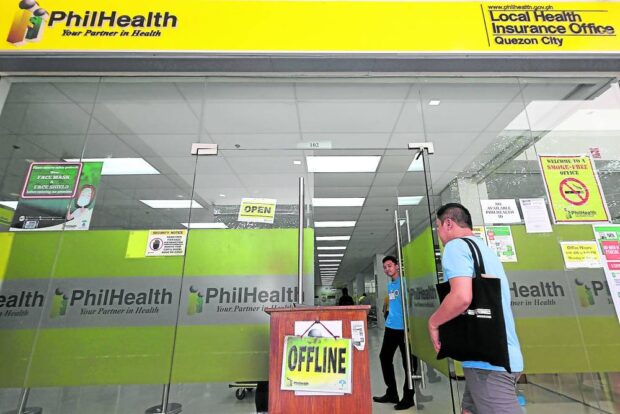
COMPUTER BREACH PhilHealth’s operations revert to handbook after its web site and pc methods had been hacked on Sept. 22. INQUIRER file picture / GRIG C. MONTEGRANDE
MANILA, Philippines — The federal government ought to accomplice with the non-public sector for a strong and pro-active cybersecurity posture to keep away from related ransomware assault that hacked the system of the Philippine Well being Insurance coverage Corp. (PhilHealth).
The decision “to accomplice with the non-public sector in adopting a strong cybersecurity posture to guard the nation’s essential infrastructure sector from cyberattacks” was made by client advocacy group CitizenWatch Philippines.
“The PhilHealth ransomware incident is a painful reminder that our on-line world is rarely an area protected, as a result of hackers and different nefarious actors threaten to negate our positive aspects in transitioning right into a digital economic system,” mentioned CitizenWatch co-convenor Equipment Belmonte in a press release on Monday.
Belmonte famous that essential infrastructure methods corresponding to power, transportation, finance, water, meals, agriculture, healthcare, and emergency response all depend on info and communications know-how to function.
“Cyberattacks may cause disruptions that considerably affect public security, safety, financial stability, or public well being,” he mentioned.
“Cyber-attacks have tangible prices – ransom paid, downtime, lack of productiveness, the breach of non-public info of thousands and thousands, threats of publicity, to not point out the erosion of residents’ confidence in our methods and establishments,” he added.
Laptop hackers attacked the web site and on-line utility of PhilHealth on September 22.
READ: Leaked Philhealth knowledge ‘staggering,’ says NPC
Companies and transactions of the state insurer had been performed offline for a number of days earlier than its web site was restored on September 29.
Nevertheless, a “staggering” quantity of information equal to greater than 730 gigabytes of information had been leaked from the state insurer’s system, in response to the Nationwide Privateness Fee.
JPV

